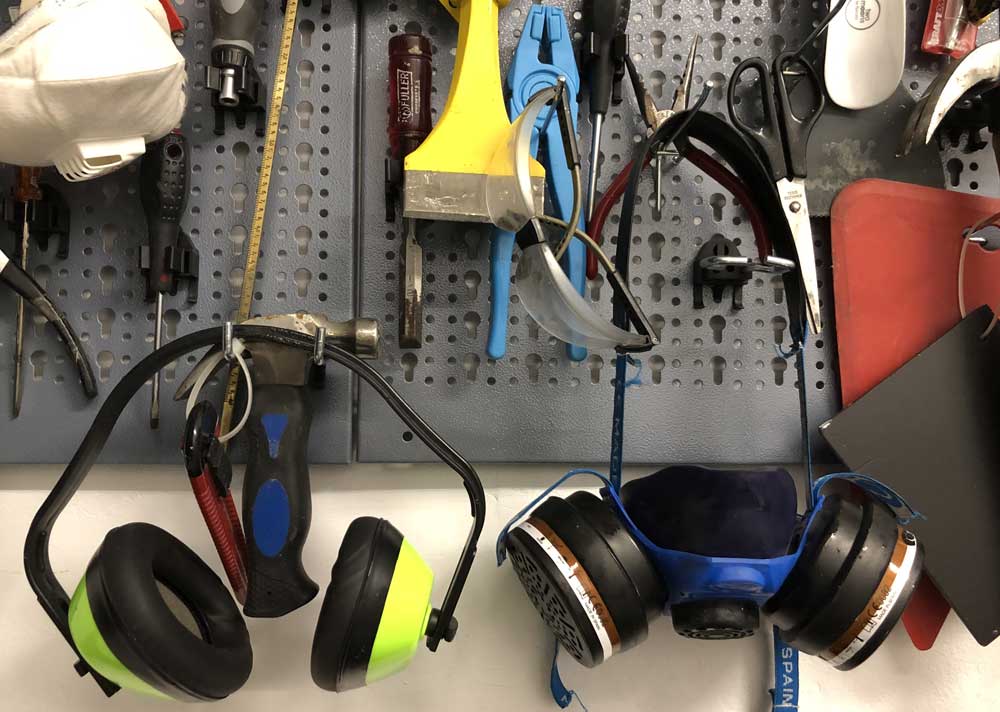
Working in a glass studio can have a few health risks. If you follow these general guidelines you will minimize injury and safety concerns.
1. Ventilation
One of the first and most important health concerns in a glass studio are harmful particles in the air (and fumes if you’re running a kiln). To make sure your studio is properly ventilated you can install a fan – or a ventilation system – that pulls the air out through an open window or door to ensure ongoing air renewal.
If you don’t have proper kiln venting, try to avoid being in the studio while your electric kiln is running to stay away from the danger of fumes.
2. FFP3 mask
Grinding glass and sandblasting or using fine powders such as silica for mold making can seriously damage your lungs in the long run. Always wear a respirator when you work with fine powders. To keep your lungs safe, make sure the one you use is an FFP3 mask – the most effective one for hazardous powders.
You can buy disposable FFP3 masks or an FFP3 respirator and change the filters as needed.
3. Electricity
Working in a glass studio involves using machines that run water. Electricity and water are a dangerous mix — fortunately for us, glass equipment is designed following the highest safety standards. As machines get older, always inspect the cables to make sure these are properly covered and there are no leaks anywhere. Keep your floors dry and make sure there’s no water accumulation on the ground.
If your electrical installation doesn’t have a grounding system for safety, you can buy a surge protection socket and plug all your machines there.
4. Eye protection
Eye protection is extremely important, especially when you’re cutting glass using a saw. Goggles are your best ally to preserve your vision! The only downside of using goggles is that depending on the ones you choose they may fog up. Find anti-fog goggles and problem solved.
5. Gloves
Your hands are one of your most precious assets as an artist. Always use protective gloves when you cut glass. You can buy rubber gloves or specific ones for glass. If you don’t use gloves then you’ll need to have a first-aid kit and plenty of Band-Aids!
6. Ear protection
Glass studio machinery can be particularly loud, especially cutting saws. When working with loud machines, always wear ear protection to avoid damaging your hearing over time.
7. Vacuuming
Another good practice is to always vacuum the floors once you’ve finished your day and before you leave your studio. After vacuuming, mop the floors often too to remove any additional hazardous particles.
Keeping your studio clean and following these tips will help you minimize potential health risks and you’ll live many more years! 🙂
